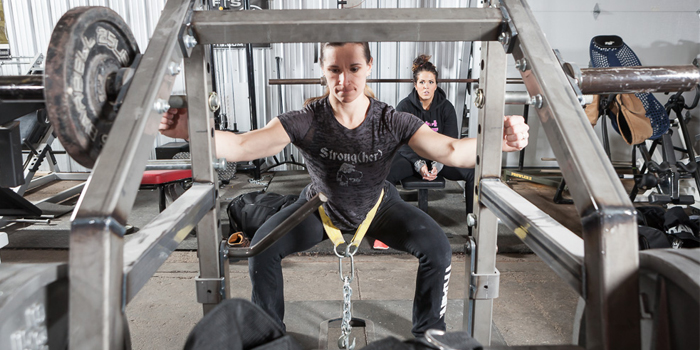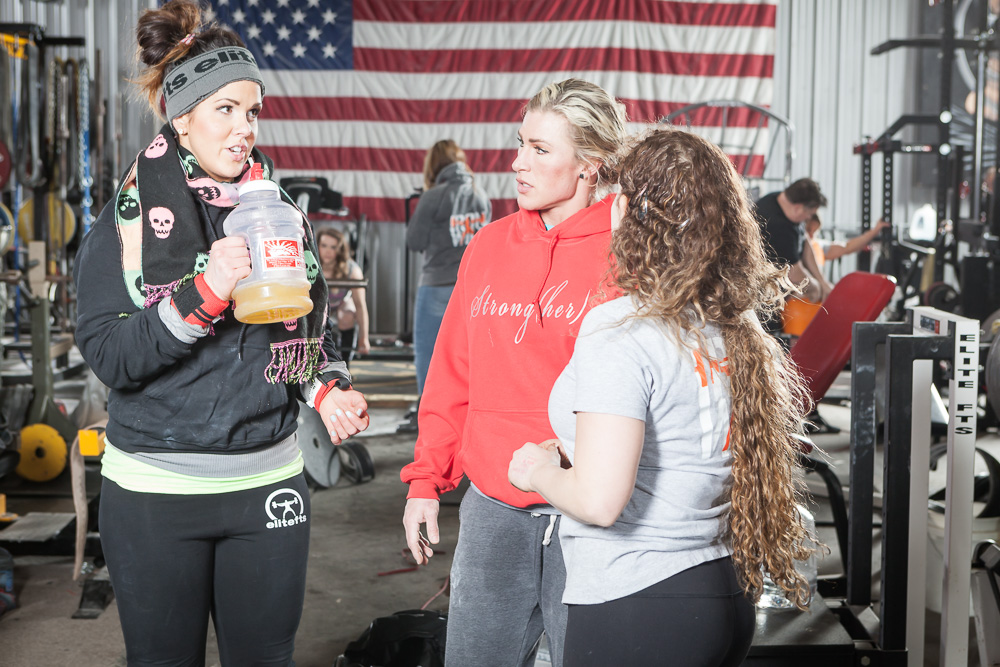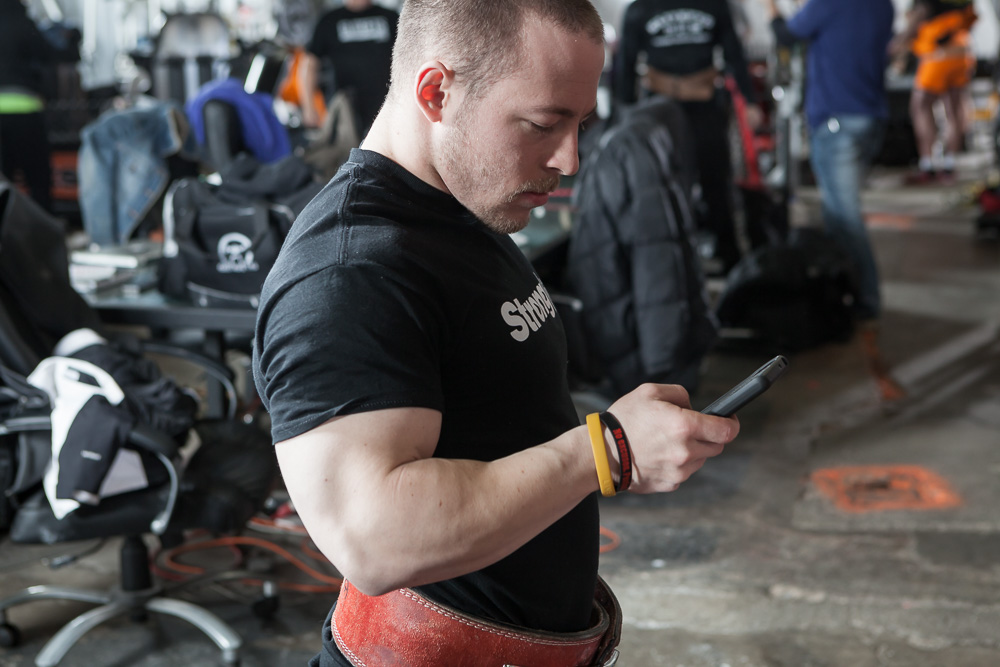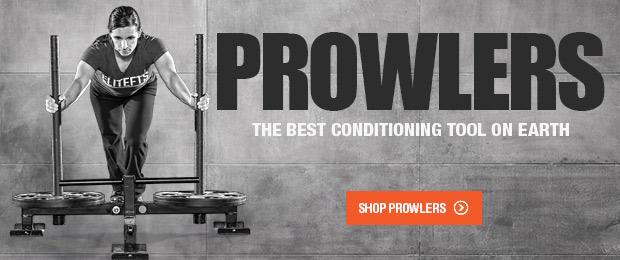
When it comes to a client or athlete’s success, there are several factors involved. We can talk about consistency, hard work, program designed towards specific goals, nutrition, recovery, sleep, supplements, etc. But one of the worst things that can happen to a coach is seeing something your client posts on social media that doesn’t line up with the plan you had for them. Or finding out four weeks later that they’ve altered a few things along the way. Or worse yet, they’ve been hurting and not told you.
Even with all those other variables, much of the success lies with this one thing in the center of it all: COMMUNICATION.
As a client progresses through a training program, I always make it imperative from the start that they know their feedback and communication is important. The most successful clients are those that update regularly, give honest feedback, and ask questions when unsure of something.
One of the biggest things that needs to be communicated is injuries and pain. If you get done squatting one day, it won’t hurt to send a text or email to your coach to say, “Hey, I felt a little pull in my groin on the last set of squats. Wanted to let you know for next week’s programming.”
SIDE NOTE: This is also where week-to-week programming is beneficial rather than having a 12-week program thrown at you up front.
A good coach will ask questions about the injury and find out what’s going on. They will gives ideas on recovery tactics to see if the pain improves over the next few days. A modification may be made right away, or they may have the athlete warm-up next squat day and see how it feels. If he/she feels “A” then do “B.” If he/she feels “X” then do “Y.”
Typically an athlete is afraid to reach out, though, and I hear it all the time.
“Why didn’t you tell me you’ve been hurting for the past two weeks?”
“I didn’t want to seem like a baby.” Or, “I didn’t want you to tell me to go light or take time off.”
I’ve been a culprit here too, and I’m sure we all have. I must say, after 17 years of training, I know my body pretty well. I know when something just feels funny for the day or when it’s a nagging issue that needs to be communicated. Perfect scenario has been my hip. My left one had been tight so I got some soft tissue work done. Next squat day, I felt good, but the right side compensated a bit (due to the left being worked on) and some new issues arose. I managed it with some foam rolling, hot baths, and some flossing exercises. It would start to feel better, so I kept squatting and pulling. After a couple lower body sessions, I knew I needed a break. I was making headway on the progress, but not enough with the continued heavy work.
So I reached out to my coach, we spoke about some of the things I can continue to do to remedy the problem (more massage/soft tissue work, continued warm-up routine, added activation work), made the adjustment for my next lower body day, and changed up my days moving forward.
Despite what “program” you’re following, what the book says, or what you were supposed to do, adjustments are always going to need to be made. A good training program is dynamic. A great coach will adjust. A smart athlete will communicate.
Another aspect that needs to be communicated is your nutrition. Wait...you're telling me you don't have someone helping you with that? Tsk, tsk.
A nutrition program needs to fit the life of the athlete. Important things that should be communicated to your coach are the foods you like and dislike, your work schedule, your energy/strength levels, and how compliant you’ve been with the program. Oftentimes athletes will either make changes on their own, or worse yet, say they’ve been following the plan “to a T” only to find out weeks later they haven’t.
Popular reasons for not communicating are fear and guilt. They don’t want to be reprimanded for not staying on track. They feel they have let their coach down. Apology after apology spills out.
“I promise I’ll do better next time.”
A smart athlete will communicate right away when something isn’t working for their life/schedule or they went out and had a few beers. Those issues can be tackled right away and solutions can be found.
Another reason is that the athlete thinks they know better. I always have open ears to what the athlete has done in the past. I ask lots of questions about what worked for them, what didn’t work, what they liked and didn’t like, and what their training was like while following that nutrition plan as well. (Remember, the nutrition plan has to fit the training and vice versa.) However, nine times out of 10 the way they are eating now (fill in the blank with popular “diet” plan out there), isn’t working for them, so something needs to be changed.
A good nutrition program is dynamic. A great coach will adjust. A smart athlete will communicate.
And lastly, don’t forget to communicate your training. My athletes turn in a training log at the end of the week and send videos of their big lifts. If a full log is not sent, it is assumed that all exercises, sets, reps and numbers were hit.
Oh wait…your buddy roped you into benching with him on Saturday even though you just benched Friday? You keep skipping your back work/rehab work/weak point work because you either don’t have time, or are just too lazy? It’s difficult for your coach to determine your progress and needs when you aren’t communicating what’s being done or missed.
LISTEN: Showing Loyalty and Earning Trust with Evan Marcus
A good relationship requires openness and honesty. If you don’t communicate out of fear, or worse yet the other person doesn’t listen and work with you, it’s a recipe for disaster. The ability to listen without defenses is what makes a relationship work. A coach/athlete relationship is no different. This communication also leads to figuring out if the coach is right for you (or as the coach, if the athlete is right for you). If it’s not working, no hard feelings and move on. But, as the athlete, you have to be honest with yourself. Is it not working because you’re being stubborn and bull-headed or is it truly because this coach isn’t a good fit? As the coach, you have to be honest with yourself. Are the athlete’s goals out of your realm of helping them? Is there an injury that needs to be outsourced? And by all means, if they are not communicating and being compliant, fire them as a client.
Don’t be that athlete that notifies their coach days or weeks after you’ve decided to take things into your own hands. A good coach will take your considerations, issues and concerns and work with you on them. They will find foods you enjoy, they will make sure your training fits your schedule, and they will certainly modify your training to heal and recover while still making progress.
All it takes is a simple text or email to let your coach know as soon as possible what’s going on. I’ve had some clients say, “I’ll probably bother you with too many texts!” First of all, if you start to bother me with insignificant things, I’ll let you know. Second, the more communication, the better chance of success. Communicate with your coach…before they see an Instagram video or Facebook post of you doing something stupid.













1 Comment